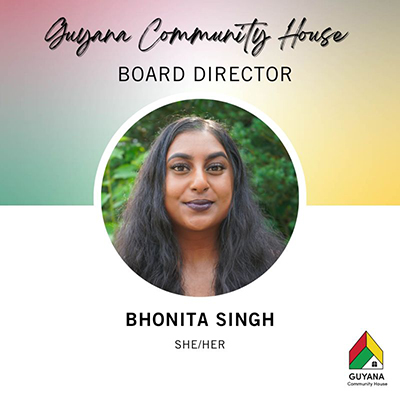The challenges of housing are great, and it is the most disadvantaged groups who experience these challenges the most, across Canada. Guyana Community House is an example of one of a small organization seeking to carve out a place for itself in the Greater Toronto Area housing landscape, but fighting an unequal battle with for-profit developers.
Its mission is to address the lack of quality housing and create inclusive housing solutions, such as cooperative housing projects or community land trusts, particularly for members of Toronto’s Caribbean diaspora.
Like many local organizations across the country striving to serve historically underserved communities, the organization faces many challenges when trying to move forward with housing initiatives. Issues such as securing funding, building partnerships and acquiring land hamper its progress. But what are the elements that could actually play in their favour?
Urgent needs, few housing solutions
The Caribbean community, and particularly the Guyanese population, is significant in the Greater Toronto Area. 69% of the Canadian population of Caribbean origin lives in Ontario, and close to 200,000 Guyanese have settled here.
Guyana Community House was created in January 2021 by a group of people keen to find effective solutions to the poverty that afflicts Caribbean communities. Housing solutions quickly emerged as central to the fight against poverty. Hence, the organization’s mission to create quality affordable housing.
The organization wants community-focused housing to foster connections and improve overall well-being. “Housing is the cornerstone; meeting this basic need lays the foundation for all other aspects of life,” says Bhonita Singh, a member of Guyana Community House.

The challenges faced by elderly people and newcomers are particularly evident. In the past, it was straightforward for newcomers to find housing within or outside the Greater Toronto Area, enabling them to manage their housing situation independently, even without close ties to their community. Today, however, finding quality housing has become more difficult, especially in areas where Caribbean amenities such as grocery stores are located.
Additionally, many community members benefit little from the programs and services offered by their home communities, due to the lack of contact and the ensuing lack of information sharing, exacerbating their situation.
The way forward for small organizations: community-oriented housing
To respond to these concerns, the Centre has funded Guyana Community House to conduct community consultations in the second half of last year to understand community needs and preferences. Participants stressed the importance of culturally relevant solutions in their neighbourhoods.
Affordability and housing location were identified as key factors in defining quality housing.
Through these targeted consultations in areas with large Caribbean populations, the organization has gathered information that will enable it to create adequate housing solutions. It is currently focusing on the development of cooperative housing projects. It is also preparing to launch a community bond initiative to raise funds for the purchase of real estate to launch its housing projects.
“Securing grants and overcoming red tape are important parts of the process,” Singh points out. “Unfortunately, more projects are being rejected than funded, due to the high demand for limited resources.”
Moreover, getting people to buy into the cooperative model is a major challenge, as few are familiar with its principles. The organization must therefore educate the community with the aim of mobilizing its support for the process.
Added to these obstacles is the competition for land. The organization’s financial resources are no match for the buying power of for-profit developers, explains Singh.
Alternative support programs and solutions: right of first refusal and acquisition funds
In Guyana Community House’s experience, engagement with local governments, including regional bodies and municipal councillors, has revealed support for the initiative. According to them, municipal leaders are keenly aware of the housing issues facing communities, not only within the Caribbean diaspora, but across Ontario and Canada as a whole.
The decline in affordable housing stock is clearly due to the increasing dominance of large landlords in the rental market, who buy up older rental properties, renovate them and then raise rents. Community housing organizations lacking the same financial agility are struggling to compete with this trend.
There are, however, several initiatives that have the power to mitigate the current situation. These include British Columbia’s Rental Protection Fund and Quebec’s right of first refusal.
British Columbia’s Rental Protection Fund enables non-profit and cooperative housing providers to purchase existing private rental properties. By transferring ownership to these entities, the aim is to safeguard affordable rental stock and stabilize rents by removing them from the speculative market. This initiative is attracting a lot of attention in the sector, and several organizations such as the Canadian Housing and Renewal Association CHRA, BC Non-Profit Housing Association, CHF Canada and the Centre would like to see the equivalent at federal level.
The right of first refusal is a type of preferential right that was added to the Quebec Municipal Code in 2022. Municipalities can use it to their advantage to secure the acquisition of properties. When a purchase offer is made to the owner of an estate, the municipality can exercise its right to match the offer and acquire the property. With this right, the municipality’s offer takes precedence over that of the original buyer. In some cases, this can help non-profits and housing cooperatives obtain land.



